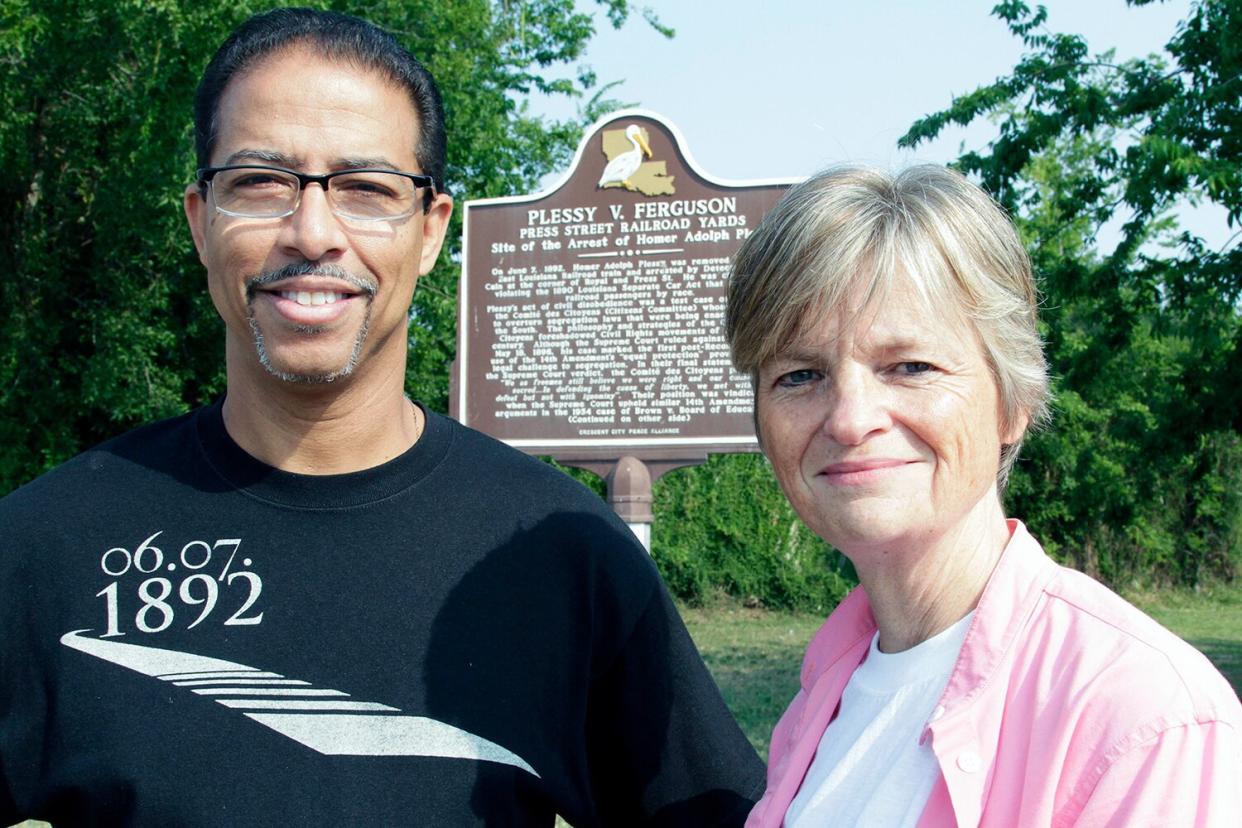Homer Plessy of 'Separate but Equal' Case Posthumously Pardoned a Century After Segregation Arrest

- Oops!Something went wrong.Please try again later.
- Oops!Something went wrong.Please try again later.
- Oops!Something went wrong.Please try again later.
Bill Haber/AP Homer Plessy's descendant Keith Plessy and Phoebe Ferguson, the great-great granddaughter of Judge Ferguson
Louisiana Gov. John Bel Edwards on Wednesday issued a pardon for Homer Plessy, the plaintiff in the 19th-century U.S. Supreme Court case Plessy v. Ferguson, which infamously upheld laws imposing "separate but equal" segregation.
According to a statement posted on Twitter, the clemency was Louisiana's first posthumous pardon.
"Homer Plessy more than did his part," Bel Edwards said on Wednesday.
Plessy, a Black man, was a member of a civil rights group that protested segregation laws. In 1892, while 30 years old, he bought a first-class ticket on the East Louisiana Railroad and sat in the "whites only" passenger car. He resembled a white man, and he told the conductor he was seven-eighths white and would not be sitting in the Blacks-only car.
RELATED: Civil Rights Pioneer Gloria Richardson Dies at 99: 'She Was Born a Leader'
After being arrested and released a day later on a $500 bond, Plessy went on to serve as the plaintiff in Plessy v. Ferguson before the Supreme Court, whose ruling enshrined the "separate but equal" doctrine that affirmed segregation in American public facilities for decades.
But subsequent court decisions and legislation in the 20th century ultimately weakened the Plessy decision to the point that it was abandoned.
School segregation was overturned by the Supreme Court's 1954 decision in the Brown v. Board of Education case and completely outlawed by the federal Civil Rights Act of 1964.
.@LouisianaGov: ‘Homer Plessy more than did his part’ #lagov #lalege pic.twitter.com/ujkZCUqA68
— Greg Hilburn (@GregHilburn1) January 5, 2022
A number of Plessy's descendants as well as Louisiana civil rights figures and lawmakers watched as his pardon was signed on Wednesday.
Phoebe Ferguson, great-great granddaughter of Judge John Howard Ferguson, who ruled against Plessy and upheld the law that made racial segregation on public transit in Louisiana a crime, was also on hand.
"It is this unjust criminal conviction that has brought us here today," Phoebe said, adding that the ceremony helped to "reaffirm the pledge to do whatever is within our power to prevent such wrongs in the future."
She continued: "We come here as descendants of both sides of the Plessy v. Ferguson case, in the true spirit of reconciliation and healing the official pardon of Homer Plessy and the recognition of his wrongful conviction ... inspires us to continue with the efforts to educate about our history and to advocate for justice and equality."
Plessy descendant Keith Plessy also spoke at the ceremony, saying, "I'm holding back tears. It doesn't feel like my feet are on the ground because my ancestors are carrying me."

